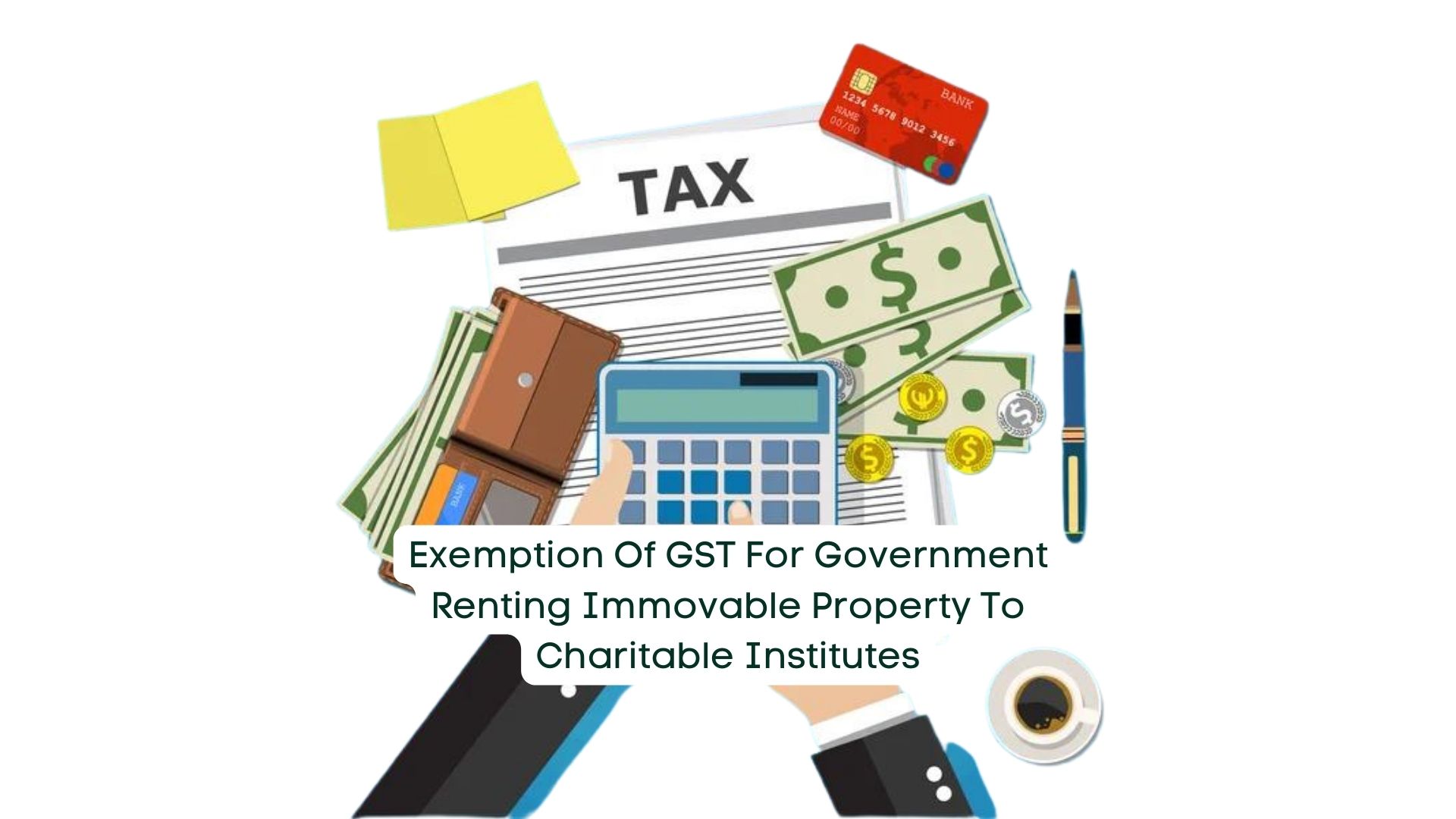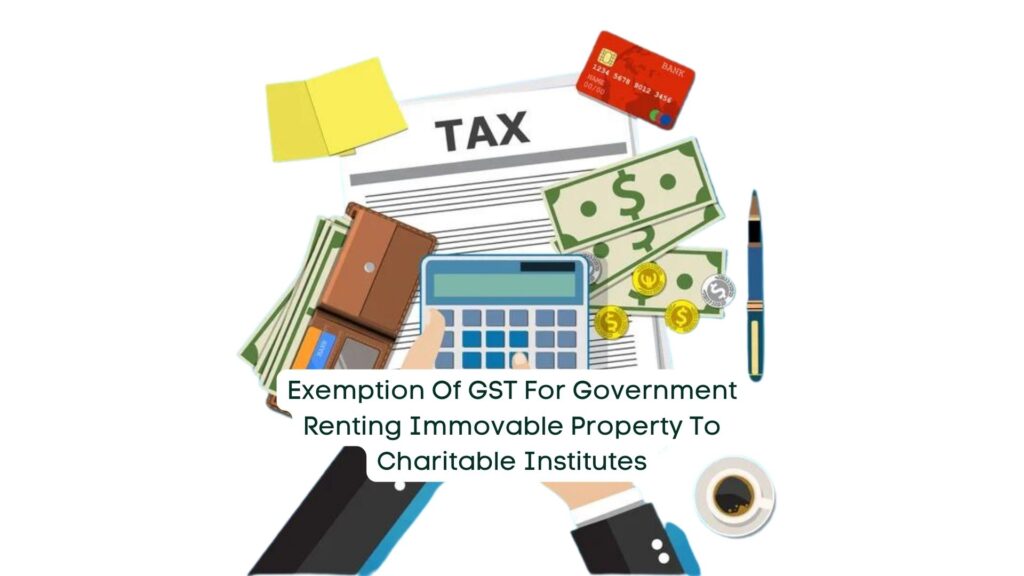
23 Feb Exemption of GST for Government Renting Immovable Property to Charitable Institutes

The advent of GST marks a significant tax reform aimed at streamlining taxation across the nation. While this reform has brought benefits to various sectors, its implications for charities and non-profit organizations are noteworthy. This article explores the impact of GST on the renting of property by the government to charitable institutes, shedding light on its effects on non-profits and charity trusts.
Charitable Institutes
The term ‘charity’ embodies altruism in action, emphasizing concern for others over self. Charitable endeavors entail voluntary contributions, whether monetary or in-kind, to assist those in need. Often, collective efforts yield greater outcomes, leading to the establishment of numerous Non-Governmental Organizations (NGOs) and non-profit entities worldwide, dedicated to fundraising for charitable causes through institutions or trusts.
These organizations play a pivotal role in advancing the government’s economic and social welfare objectives. Their localized approach enables effective identification and support for the underprivileged. In recognition of their contributions, the Indian government extends various tax incentives and exemptions to charitable entities, notably under Section 80G of the Income Tax Act, 1961.
Criteria for GST Exemption
To qualify for exemption from Goods and Services Tax (GST), a charitable trust or non-profit organization must fulfill specific criteria. Registration under Section 12AA of the Income Tax Act, 1961 is mandatory, and services rendered must align with charitable purposes.
Charitable Activities under GST
The GST Act delineates qualifying charitable activities, which include:
- Services related to public health, such as end-of-life care and counseling for terminally ill individuals.
- Initiatives addressing HIV/AIDS, substance addiction, preventive healthcare, and family planning.
- Advancement of religion, spirituality, yoga, and educational programs catering to marginalized groups.
- Conservation efforts focused on the environment, including watershed preservation and wildlife protection.
Entities failing to meet these criteria are subject to GST and must register accordingly.
GST Applicability on Charitable Institution Functions
Activities such as training programs and yoga camps, if conducted for a fee, are considered commercial and attract GST. Similarly, donations received for such activities are taxable under GST. However, GST exemption applies to recreational activities, arts, sports, and educational endeavors benefiting disadvantaged demographics.
Judicial Perspective
The Supreme Court’s ruling in Commissioner of Sales Tax Vs. Sai Publication Fund underscores that charitable trusts primarily engaged in philanthropic pursuits do not qualify as ‘businesses’ under GST regulations. The judgment clarifies that activities supporting the trust’s objectives, rather than profit generation, do not constitute business transactions.
Conclusion
Charitable activities, by their nature, do not align with the conventional understanding of ‘business.’ While renting immovable property to charitable institutes by the government qualifies as an exempt service, potential litigation looms over the interpretation of GST regulations in charitable contexts.


No Comments